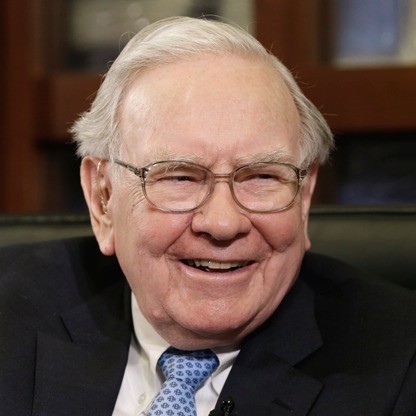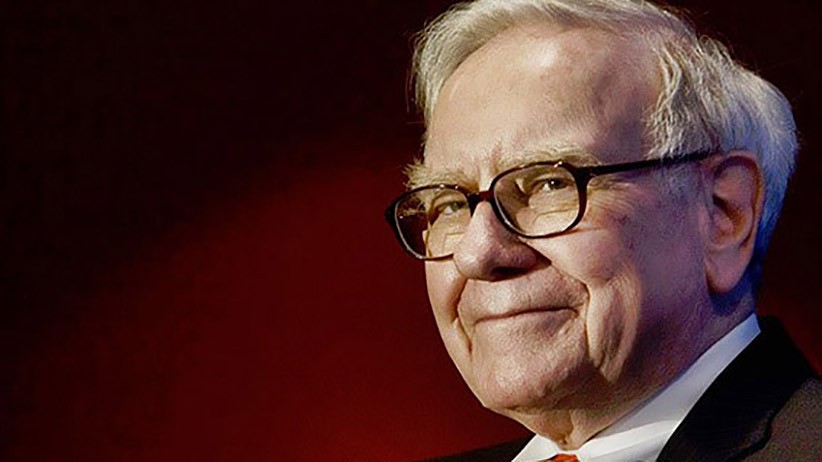The Education of Warren Buffett_1
Post on: 4 Июль, 2015 No Comment

When most people think Warren Buffett, they think of money. Though Buffett’s father was a congressman and a stock broker. young Warren became a billionaire all on his own. Those who wish to emulate his success should focus on Buffett’s process, not the final product who lives in Omaha.
Education was a major part of Warren Buffett’s process, but that education was not confined to the four walls of a school classroom (even if he did attend University of Pennsylvania’s Wharton School of Business, the first and perhaps the most prestigious business school in America). His most important lessons came from first-hand experience.
Childhood Motivation
According to the classic Warren Buffett biography The Making of an American Capitalist by Roger Lowenstein, Buffett was born on the 30 th of August, 1930 at the beginning of the Great Depression. Just before Buffett’s first birthday, the bank where his father worked and that held their family savings closed. Buffett was witness to the hardship that his family underwent in the Depression: his mother, Leila, would sometimes skip dinner to give his father a full portion, and she occasionally skipped church and tithing to afford a pound of coffee.
The eight block walk to school in Omaha’s bitter winters made the little Warren toughen up in the face of adversity. It seems that challenges are what interested Buffett from a young age. Many of his early business ventures had a higher purpose than merely providing pocket money. Once, while having lunch with Carl Falk, his father’s business partner, and his family Warren declared he would be a millionaire by age of thirty and enigmatically added, “and if not, I am going to jump off the tallest building in Omaha.” When Mary Falk, Carl’s wife, asked, “Why this drive to make so much money?” Buffett replied, “It is not that I want money, it is the fun of making money and watching it grow.”
Investing in the Blood
Buffett seems to have inherited his mathematical genius from his mother who had a head for numbers. Buffett is famous for being able perform lengthy calculations correctly in his head.
It is often said that you judge a person by his spending habits, and frugality is a trait that runs in the Buffett family. Warren’s father, Howard Buffett, was an idealistic and religious man. It is said the young Warren’s life revolved around his father who would recite to him a favorite maxim from Emerson: “the great man is he who in the midst of the crowd keeps with perfect sweetness the independence of solitude.”
When inflation started to accelerate after World War II, Warren’s father bought tangible assets like gold coins, a crystal chandelier, and sterling silver flatware. He stocked up on canned food and purchased a farm. His paternal influence may be the foundation of Warren Buffett’s preference of tangible over intangible assets. Like his father, Warren Buffett understands the perils of inflation and opportunistic buying. Perhaps this is why Warren Buffett’s investment philosophy prefers businesses that have tangible assets and proven earning power.
Buffett worked at his grandfather’s grocery store and said that he learned the values of honesty, punctuality, discipline, hard work and good behavior, as well as the tricks of retail business at his grandfather’s feet.
Both Leila and Howard Buffett were involved in newspaper businesses at various times in their careers, which may be a clue to Buffett’s engaging epistolary style and his knowledge of the nuances of the newspaper industry.
Beyond Numbers, a Search for Patterns
When Buffett was small, he and his friend Russell would record the license numbers of passing cars. In the evening, they would sit counting how often each letter appeared and filling entire scrapbooks with numbers. At nine years-old they would count discarded bottle caps from soda machines to get an idea of which brand had the highest sales. These games honed his analytical skills and shaped his brain into an ersatz business database.
Creating Something out of Nothing

When Warren was young he collected friends and recruited pals to join him in his money-making schemes. He and his crew scavenged for erroneously discarded winning tickets at the race track. He enlisted half the neighborhood to gather used golf balls that he organized by brand and price, which he then sold for a profit.
Buffett’s Entrepreneurial Spirit
When he was six-years-old, Buffett bought a six-pack of Coca-cola bottles and sold them individually at a picnic for a nickel profit. He would later buy packs of Coke from his grandfather’s grocery and sell the individual bottles in the neighborhood door to door during the summer. He set up a lemonade stand in front of his friend Russell’s house. He ran a horse handicapping sheet called “stable boy selection” and sold them for 25 cents each.
When he was delivering newspapers in Washington, 500 each day, he developed an efficient route that took only a little over an hour to complete. In a complex called Westchester Apartments, he would throw half of the papers on fourth floor and rest on the top and then go floor by floor on foot sliding the papers in front of each apartment. He figured that he could increase his profit by adding to his product line, so Buffett found a way to sell magazines to his newspaper subscribers: the trick was to sell subscriptions as they were about to expire, and it was easy to find the date of the subscription expiry by tearing off the address label. He turned his paper route into a thriving business that earned $175 a month ($2,600 in today’s dollars!).
He setup a pinball game business by buying second-hand pinball machines between $25-$75 and placing them in barber shops. Fearing that the pinball operation was controlled by the mob, he kept his operation small. These business ventures taught him practical business lessons, like convenience and service can fetch higher prices, location is everything, efficiency determines profit margins and the practical limitations of scalability for a business.
The Bottom Line
Buffett’s success wasn’t magical; it was the product of a lifetime of careful observation and shrewd analysis. With the help of his parents and his community, Buffett’s natural talents evolved through trial, error and success to create the most successful businessman of all time.














